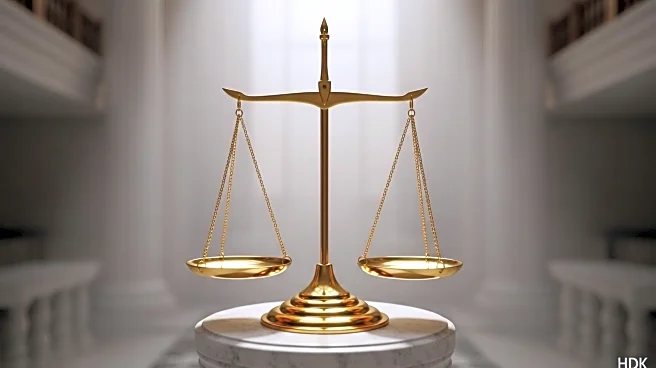What's Happening?
The Appointments Clause of Article II of the U.S. Constitution remains a focal point of litigation and judicial interpretation. This clause mandates that 'officers of the United States' be appointed by the president, with Senate approval. As the U.S. approaches its 250th anniversary, the Supreme Court and lower federal courts continue to address challenges and adjustments related to this clause, underscoring its enduring significance in ensuring governmental accountability.
Why It's Important?
The Appointments Clause is crucial for maintaining checks and balances within the U.S. government. Its interpretation affects how federal officers are appointed, impacting the functioning of various government agencies and the execution of federal laws. Ongoing litigation and Supreme Court decisions regarding this clause can influence the balance of power between the executive and legislative branches, affecting public policy and governance.
What's Next?
Future Supreme Court rulings on the Appointments Clause could lead to changes in how federal appointments are made, potentially affecting the structure and operation of government agencies. Legal experts and policymakers will be closely monitoring these developments, as they could have significant implications for federal governance and the separation of powers.
Beyond the Headlines
The Appointments Clause highlights broader constitutional issues related to executive power and legislative oversight. Its interpretation can set precedents that influence other areas of constitutional law, potentially affecting civil liberties and the scope of governmental authority.









